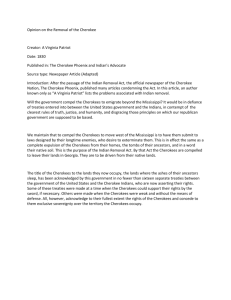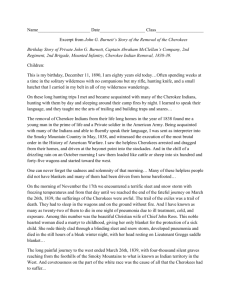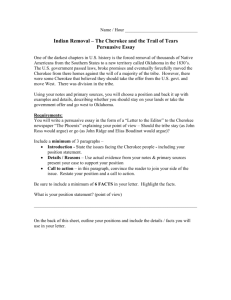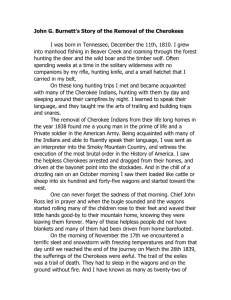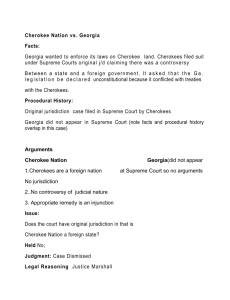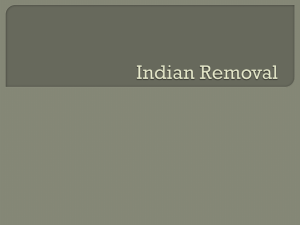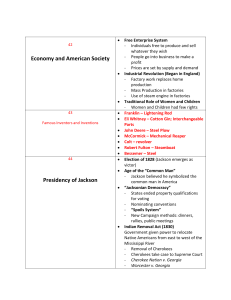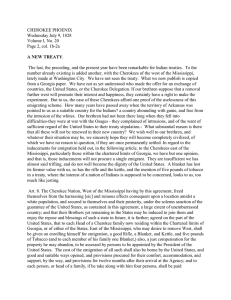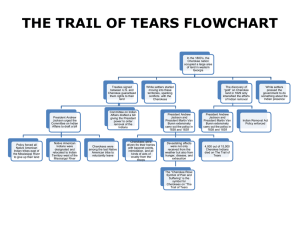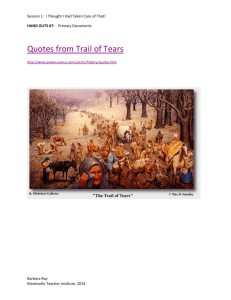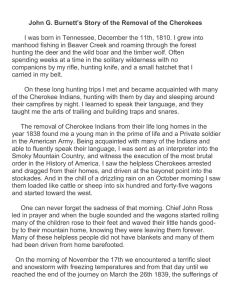Editorial - Teaching Tolerance
advertisement
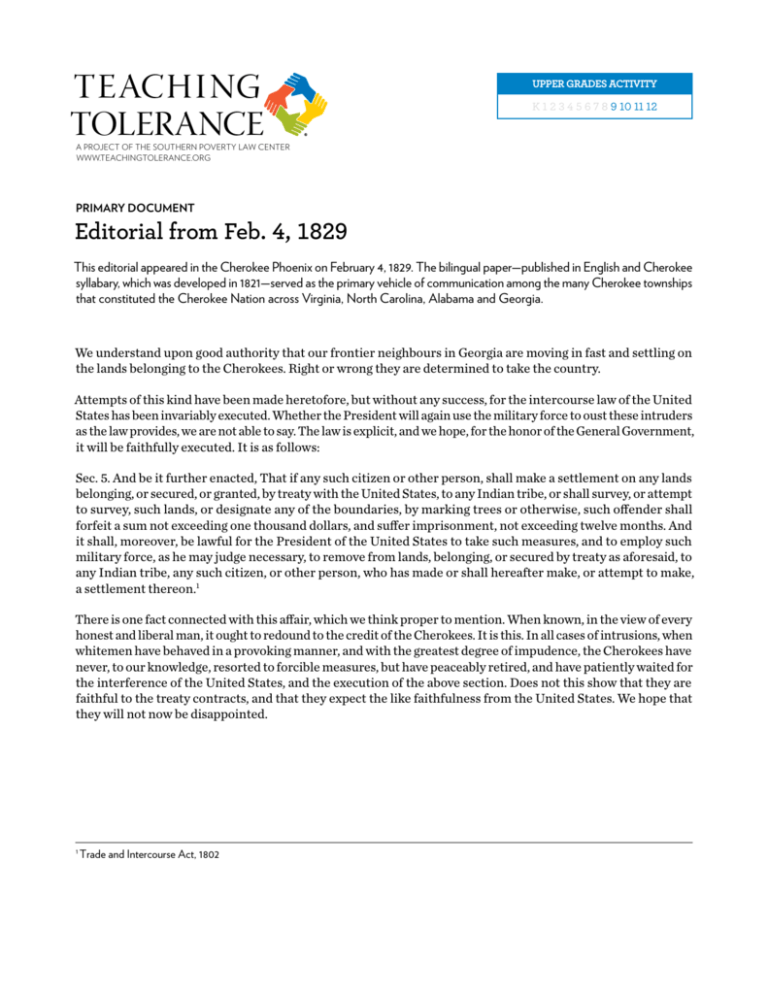
teaching Tolerance upper grades activity K 1 2 3 4 5 6 7 8 9 10 11 12 a project of the southern poverty law center www.teachingtolerance.org primary document Editorial from Feb. 4, 1829 This editorial appeared in the Cherokee Phoenix on February 4, 1829. The bilingual paper—published in English and Cherokee syllabary, which was developed in 1821—served as the primary vehicle of communication among the many Cherokee townships that constituted the Cherokee Nation across Virginia, North Carolina, Alabama and Georgia. We understand upon good authority that our frontier neighbours in Georgia are moving in fast and settling on the lands belonging to the Cherokees. Right or wrong they are determined to take the country. Attempts of this kind have been made heretofore, but without any success, for the intercourse law of the United States has been invariably executed. Whether the President will again use the military force to oust these intruders as the law provides, we are not able to say. The law is explicit, and we hope, for the honor of the General Government, it will be faithfully executed. It is as follows: Sec. 5. And be it further enacted, That if any such citizen or other person, shall make a settlement on any lands belonging, or secured, or granted, by treaty with the United States, to any Indian tribe, or shall survey, or attempt to survey, such lands, or designate any of the boundaries, by marking trees or otherwise, such offender shall forfeit a sum not exceeding one thousand dollars, and suffer imprisonment, not exceeding twelve months. And it shall, moreover, be lawful for the President of the United States to take such measures, and to employ such military force, as he may judge necessary, to remove from lands, belonging, or secured by treaty as aforesaid, to any Indian tribe, any such citizen, or other person, who has made or shall hereafter make, or attempt to make, a settlement thereon.1 There is one fact connected with this affair, which we think proper to mention. When known, in the view of every honest and liberal man, it ought to redound to the credit of the Cherokees. It is this. In all cases of intrusions, when whitemen have behaved in a provoking manner, and with the greatest degree of impudence, the Cherokees have never, to our knowledge, resorted to forcible measures, but have peaceably retired, and have patiently waited for the interference of the United States, and the execution of the above section. Does not this show that they are faithful to the treaty contracts, and that they expect the like faithfulness from the United States. We hope that they will not now be disappointed. 1 Trade and Intercourse Act, 1802

